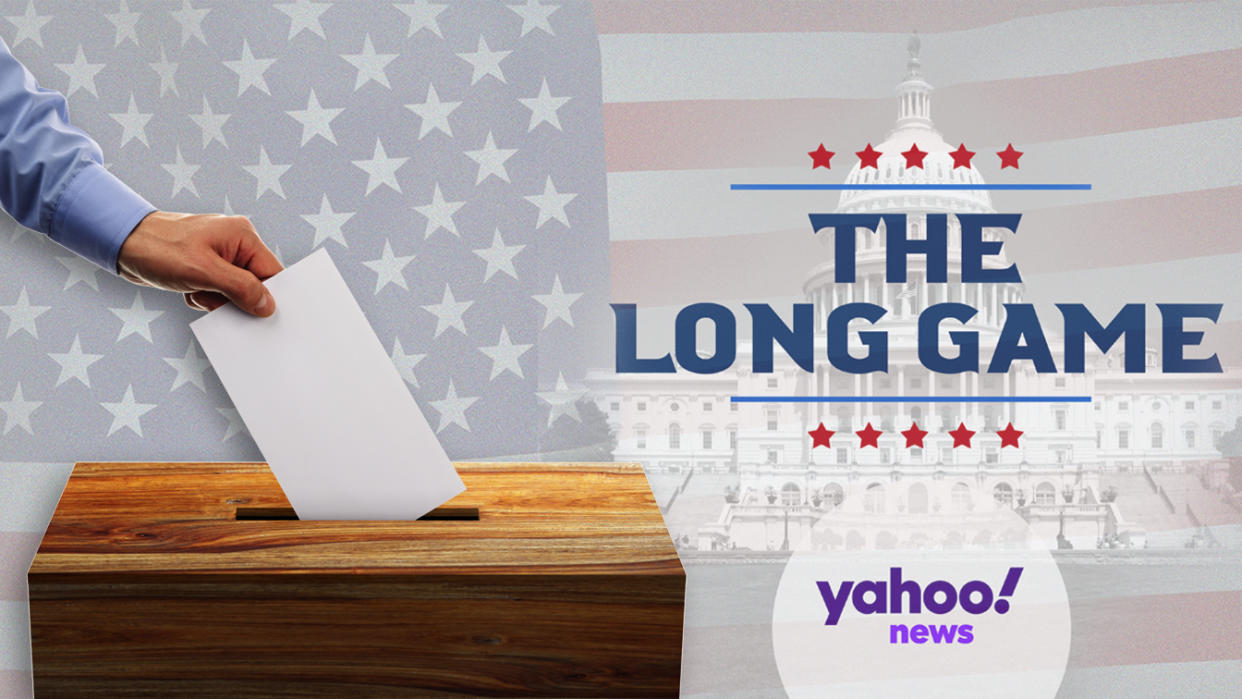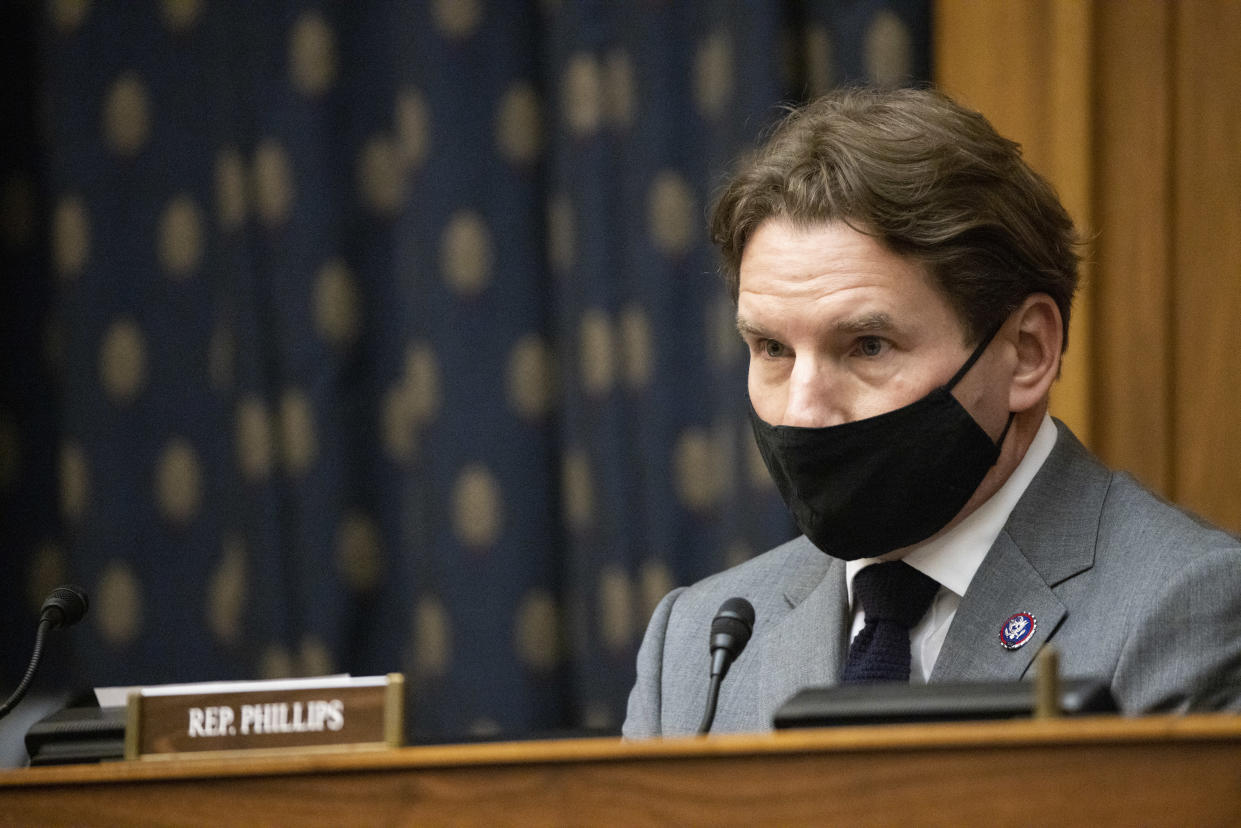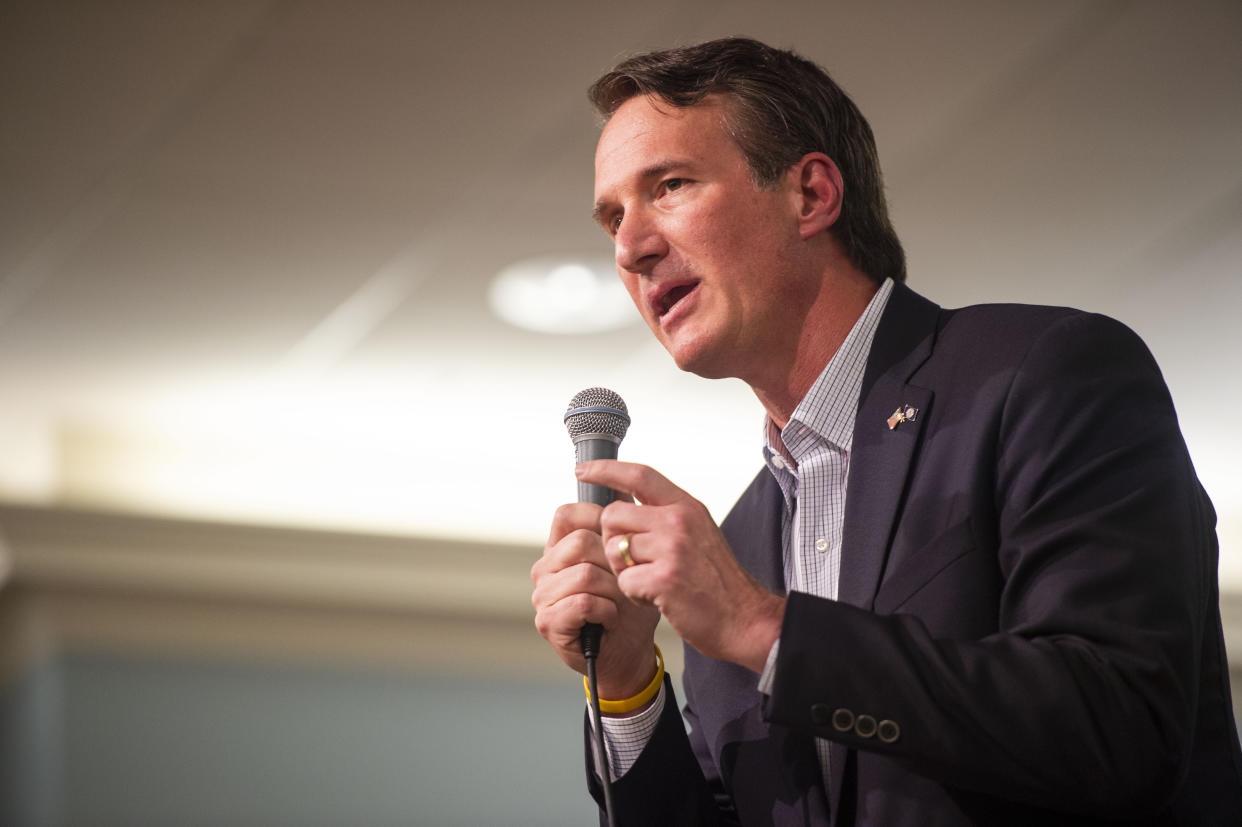Why a House Democrat wants to change how elections are done in America
A Minnesota congressman said that he will push the Democratic Party to elect the House leadership in 2022 by ranked-choice voting, and that he plans to make this reform central to his agenda going forward.
“It should be used in our leadership elections in the House of Representatives, because I think we should be walking the talk, and we're not doing it yet,” said Democratic Rep. Dean Phillips in an interview on “The Long Game,” a Yahoo News podcast. (Current House Speaker Nancy Pelosi has said this is her last term as speaker.)
Phillips has become an enthused supporter of the election reform, in which voters list candidates in order of preference. If no one gets above 50 percent, then the candidate with the most second- and third-place votes wins. The general idea is that it produces winners who are most preferable to the majority of voters, rather than allowing candidates to win with just 30 or 40 percent in a crowded field where other candidates split up the vote.

“I would argue [ranked-choice voting] is working, it moderates candidates, it provides a political incentive to broaden your base and go beyond that core voter, if you will. And I think, most importantly, it doesn't waste anybody's vote. And that means, even if your No. 1 choice didn’t win, you still participated in the selection of the eventual winner,” Phillips said. “I'm considering making that my core political mission, whether inside of Congress or outside, to push RCV voting. I was not a fan 10 years ago, but I’ve seen it work in my home state, my hometown, Minneapolis.”
Phillips was first elected to Congress in 2018 and won reelection in 2020. The 52-year-old businessman is heir to the Phillips distilling fortune and was the company’s CEO from 2000 to 2012. He went on to fund and manage two other investments: Talenti Gelato, which he sold in 2014 and is now a national brand, and a coffee and crepe eatery in Minneapolis. He has stood out in Congress for his willingness to buck party leadership at times; for example, he opposed the idea of overturning an Iowa House election, and he attempts to discuss racism and police reform in a nonreductionist way. His district is suburban and well-off, and he has received high marks from congressional accountability groups for both bipartisanship and productivity.
Minneapolis was one of the earliest adopters of ranked-choice voting. The city utilized the system for its 2009 elections, and a growing number of cities are now doing the same. The biggest of these is New York City, which will use ranked-choice voting in its citywide primary elections on June 22. Republican-leaning Utah announced this month that after two of its cities used ranked-choice voting in municipal elections in 2019, 23 cities are now going to use the system in this year’s local contests. There are now just over a dozen states where localities have used RCV or have approved it and are planning to use it in upcoming elections.

Two states — Maine and Alaska — have adopted it statewide in just the last few years, and recently the Republican Party has adopted the practice in two other states, Georgia and Virginia, for its primaries there.
“The best evidence of ranked-choice voting catching on beyond just Democrats is actually in the last month. Nobody's paid attention to it,” Phillips said. “But the Georgia voting bill that many have accused of being suppressive — and I happen to agree, elements of it are — a little-noted part of that bill includes ranked-choice voting for overseas military.”
In Virginia, the Republican Party used ranked-choice voting in its May 8 primary election, choosing candidates for governor and other statewide offices with this method. Its decision to use a drive-in convention rather than a regular primary was widely criticized because it narrowed the number of voters to just over 12,000 people. And without ranked-choice voting, such a small electorate might have rewarded the most extreme gubernatorial candidate, state Sen. Amanda Chase, who called herself “Trump in heels,” walked around downtown Richmond last July 4 with an AR-15 assault rifle and urged then-President Donald Trump to use martial law after the 2020 election to overturn the results.
Chase had led in public polling, but her support in those polls was never more than 30 percent. Once voters cast ballots, she received 20 percent support in the first round of counting, with two other candidates ahead of her: Glenn Youngkin, who led with 32 percent, and Pete Snyder, who was at 25 percent. After the field was narrowed from seven candidates down to these last three, Youngkin was at 42 percent, Snyder at 32 percent and Chase at 25 percent. She was then eliminated, and Youngkin and Snyder divided up the votes from Chase supporters who had listed one of them as their second choice.
Youngkin, a self-funding businessman, emerged with 55 percent of the vote to Snyder’s 45 percent.

Primary elections have become one of the chief drivers of political polarization and government gridlock. Primaries now often produce the most extreme candidates because they attract the most partisan and intense voters in both parties. Phillips said that because the Virginia GOP had an even smaller subset of voters choose its candidate, Chase would have likely been the nominee if not for a reform that steered the process toward a candidate who could win with a majority rather than a plurality.
“The seeds of animosity begin in the primary. Because oftentimes it’s just the political base on the left and right that are rewarding the most partisan candidates. By having ranked-choice voting, it actually gives the more moderate candidates the opportunity to succeed. And that's what we’re seeing happen, as it did in the Virginia GOP primary just last week. It rewarded, in my estimation, the least partisan, if you will, of the prominent candidates,” Phillips said.
But he doesn't believe the federal government should mandate ranked-choice voting as the only option for states to use.
“I don’t believe ranked-choice voting is something that needs to be imposed, if you will, at the federal level. In fact, I celebrate states’ rights, as most Republicans and conservatives do. And that’s exactly how this is working right now. Municipalities and cities are adopting ranked-choice voting, serving as the laboratories, if you will. And we’re seeing more and more start adopting it every year,” he said.
“I think America’s going to really catch on to this and celebrate it.”

However, Phillips said he does support a bill in the House sponsored by Rep. Don Beyer, D-Va., that would mandate ranked-choice voting across the country.
“I support the bill, not because I believe that it's, frankly, going to pass anytime soon. But 99 percent of the bills introduced in Congress are ultimately messaging bills. They’re not going to go anywhere, they often don’t even get a vote, but they allow you to point to something, to inject an idea into the national discourse,” Phillips said. “The Green New Deal is something very similar to that, if you will.
“But I do support the notion. I’m glad that [Beyer] introduced the bill. I support it because it forces us to start talking about it. But ultimately, do I believe that states should be making these decisions? I do,” he said. “And I think, ultimately, now that we have a couple on board, you’re going to see more and more start doing it.”
____
Read more from Yahoo News:


